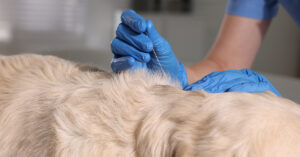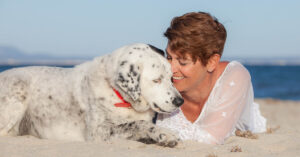As pet owners embrace the arrival of spring, it is essential to modify care routines to maintain the health and well-being of their furry friends. The central thesis of this blog post is that the transition from winter to spring requires specific attention to a pet’s diet, exercise, and preventive healthcare to optimize their well-being in the changing environment.
1. Updating Vaccinations and Preventive Medications
The arrival of spring typically leads to more outdoor activities, which can expose pets to a variety of external parasites and pathogens. It is imperative for pet owners to:
- Consult with a Veterinarian: Schedule a visit to update vaccinations against diseases like rabies, distemper, and leptospirosis. Additionally, spring marks the beginning of heartworm season, making it crucial to have your pet on a preventive regimen.
- Begin Parasite Prevention: Apply or administer prescribed flea and tick preventives. These products should be used under veterinary guidance to avoid any adverse reactions.
2. Diet and Hydration
With the increase in temperature and activity, pets’ dietary needs may change:
- Adjust Food Intake: Monitor your pet’s activity level and adjust their food intake accordingly. More outdoor time might mean they need more calories.
- Ensure Fresh Water is Available: Always provide access to clean, fresh water to keep your pet hydrated, especially after exercise.
3. Skin and Coat Care
Spring conditions can directly influence the health of a pet’s skin and coat:
- Regular Grooming: Brush your pet regularly to remove the winter undercoat, prevent matting, and manage to shed. This also helps to identify any fleas or ticks early.
- Bathing: Increase bathing frequency, but use a mild, pet-appropriate shampoo to avoid skin irritation.
- Check for Allergies: Spring allergies can affect pets much like humans. Watch for discomfort or itching and consult your vet for appropriate allergy medications.
4. Exercise and Safety
As pets likely become more active in spring, keeping them safe during outdoor activities is essential:
- Leash Training: Ensure your pet is comfortable with a leash or harness, as more frequent walks are likely during spring.
- Safe Environments: Check your yard or garden for toxic plants or insecure fencing hazards. Ensure that your pet has a secure area to play and explore.
- Gradually Increase Exercise: If your pet has been less active during the winter, increase exercise gradually to avoid injuries.
5. Home and Environmental Adjustments
Making some adjustments at home can help manage the springtime needs of your pet:
- Create a Mud-Free Zone: Designate an area near your entryway to clean your pet’s paws after being outside to prevent tracking in mud and potential irritants.
- Control Allergens Indoors: Regularly clean pet bedding and play areas to reduce the build-up of dust and allergens that can aggravate spring allergies.
6. Monitoring Health
Spring is an excellent time to pay extra attention to your pet’s health:
- Regular Check-ups: Besides the routine annual check-up, observe your pet for any unusual behavior or signs of illness, particularly gastrointestinal issues that can arise from ingesting inappropriate springtime debris.
- Weight Management: With the change in activity levels, monitor your pet’s weight to ensure it remains within a healthy range.
7. Emergency Preparedness
Finally, be prepared for any emergencies:
- Update Microchip Information: If your pet has a microchip, spring is an excellent time to check and update any contact information.
- First Aid Kit: Maintain a pet-specific kit that includes items tailored to your pet’s needs.
By adhering to these principles of pet care, owners can ensure their pets are well-prepared to enjoy the vibrancy and new growth that spring offers. Regular maintenance of these practices will help avoid many common seasonal problems and ensure a healthy, joyful season for pets and their owners.
At Laguna Beach Veterinary Medical Center, our veterinarians specialize in integrative medicine, combining both holistic and conventional treatment methods to ensure your pet receives comprehensive care. With certification and training in traditional and advanced holistic veterinary practices, our professionals deliver compassionate and unique healing techniques.
Call (949) 464-1000 to schedule an appointment with Dr. Cohen or Dr. Kruger today.



